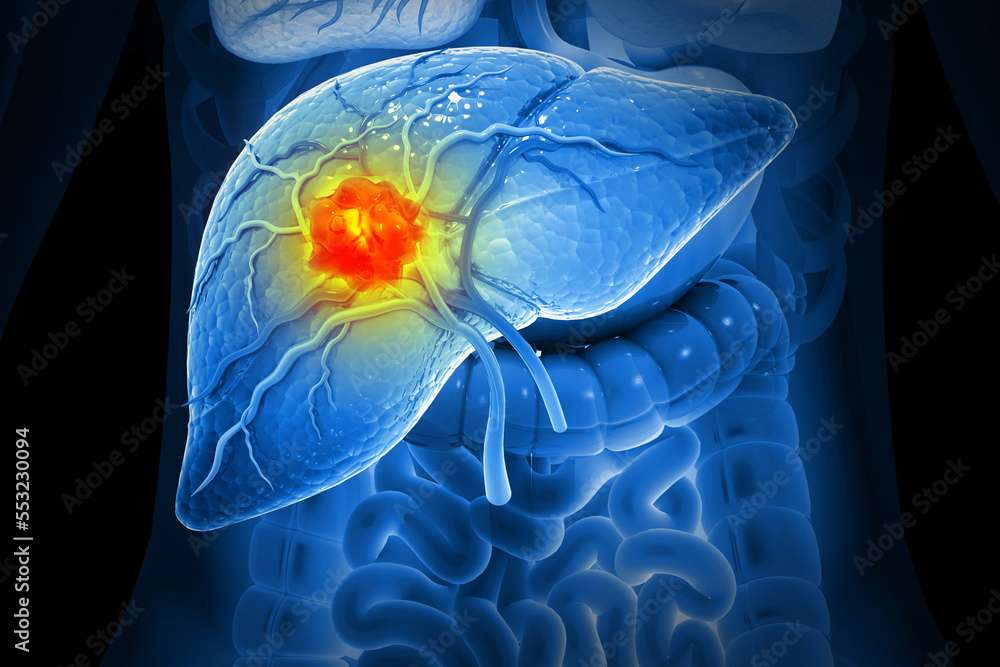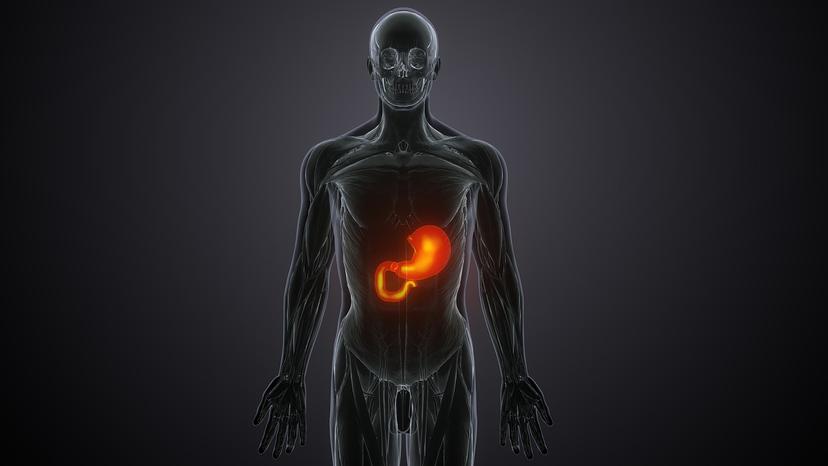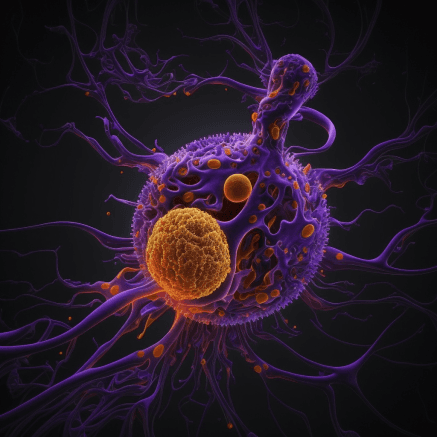
Liver Cancer Treatment in the UK: Comprehensive Options for Patients from Russia
01 Aug, 2024
 Healthtrip Team
Healthtrip TeamLiver cancer is a serious and often complex condition that requires a comprehensive approach to treatment. Patients from Russia seeking liver cancer treatment in the UK can benefit from the country’s advanced medical technologies, experienced specialists, and multidisciplinary care teams. This detailed blog will guide you through the various treatment options available, the processes involved, and the support systems in place for international patients.
Most popular procedures in India
Initial Assessment and Diagnosis:
The first step in the journey to liver cancer treatment in the UK involves a thorough initial assessment and accurate diagnosis. This phase is crucial for determining the most appropriate treatment plan and involves several key steps:
Wellness Treatments
Give yourself the time to relax
Lowest Prices Guaranteed!

Lowest Prices Guaranteed!
Referral and Consultation
Patients from Russia can be referred to specialist liver cancer centres in the UK through medical tourism agencies or by directly contacting UK hospitals. The referral process typically includes the following:
- Medical Records Review: Specialists will review the patient’s medical history, including any previous diagnoses, treatments, and current health status.
- Initial Consultation: Initial consultations can often be conducted via telemedicine, allowing patients to discuss their symptoms, concerns, and medical history with UK specialists without the need for immediate travel.
Diagnostic Tests
Accurate diagnosis is essential for determining the most effective treatment plan for liver cancer. The UK offers a comprehensive range of diagnostic tests that help in confirming the presence of liver cancer, staging the disease, and planning the appropriate treatment. Here are the key diagnostic tests involved:
1. Imaging Studies
Imaging studies play a critical role in visualizing the liver, identifying tumors, and assessing the extent of the disease. The following imaging modalities are commonly used:
A. CT Scans (Computed Tomography): CT scans provide detailed cross-sectional images of the liver and surrounding structures. They are particularly useful in detecting the size, shape, and location of liver tumors. Contrast-enhanced CT scans can further improve the visibility of tumors and vascular structures within the liver.
B. MRI Scans (Magnetic Resonance Imaging): MRI scans use magnetic fields and radio waves to produce high-resolution images of the liver. They are especially effective in characterizing liver lesions and determining the extent of the disease. MRI with contrast agents can provide additional details about the blood supply to the tumor and its relationship with nearby blood vessels.
C. Ultrasound: Ultrasound uses sound waves to create images of the liver. It is a non-invasive, widely available, and cost-effective tool for initial evaluation. Ultrasound can help detect liver masses, guide biopsy procedures, and assess the overall liver architecture.
D. PET-CT Scans (Positron Emission Tomography-Computed Tomography): PET-CT combines metabolic information from PET with anatomical details from CT. It helps in detecting metastatic disease and evaluating the metabolic activity of liver tumors.
2. Blood Tests
Blood tests provide valuable information about liver function, the presence of tumor markers, and the overall health status of the patient. Key blood tests include:
A. Liver Function Tests (LFTs): These tests measure levels of enzymes, proteins, and bilirubin in the blood to assess how well the liver is functioning. Abnormal LFTs can indicate liver damage or dysfunction, which may be associated with liver cancer or other liver diseases.
B. Alpha-Fetoprotein (AFP): AFP is a tumor marker that is often elevated in patients with liver cancer, particularly hepatocellular carcinoma (HCC). High AFP levels can support the diagnosis of liver cancer and are useful in monitoring the response to treatment and detecting recurrence.
C. Complete Blood Count (CBC): A CBC provides information about the patient’s overall health and detects any abnormalities in blood cell counts, which can be affected by liver function and cancer.
D. Viral Hepatitis Markers: Tests for hepatitis B and C viruses are important since chronic infections with these viruses are significant risk factors for liver cancer.
3. Liver Biopsy
A liver biopsy involves taking a small sample of liver tissue for microscopic examination. It is performed to confirm the diagnosis of liver cancer, determine the type of cancer, and provide additional information about the tumor’s characteristics. There are different methods for performing a liver biopsy:
Percutaneous Biopsy: A needle is inserted through the skin and into the liver to obtain a tissue sample. This is usually guided by ultrasound or CT imaging to ensure accuracy.
Laparoscopic Biopsy: A minimally invasive surgical procedure where a small incision is made, and a camera (laparoscope) is used to guide the biopsy needle to the liver.
Transjugular Biopsy: Performed by inserting a needle through a vein in the neck (jugular vein) and guiding it to the liver. This method is used when patients have bleeding disorders or ascites (fluid in the abdomen).
Additional Diagnostic Procedures
Endoscopy: Endoscopic procedures, such as endoscopic ultrasound (EUS), can be used to evaluate the bile ducts and nearby structures. This can be helpful in cases where liver cancer is suspected to involve these areas.
Angiography: An imaging technique that involves injecting a contrast dye into the blood vessels to visualize the blood supply to the liver and tumors. This can help plan surgical or interventional treatments.
The diagnostic phase is a critical step in the liver cancer treatment journey. The UK’s advanced diagnostic capabilities, including a range of imaging studies, blood tests, and biopsy techniques, ensure an accurate and comprehensive assessment of the disease. By utilizing these diagnostic tools, healthcare providers can develop a personalized and effective treatment plan, offering the best possible outcomes for patients from Russia and around the world.
Treatment Options for Liver Cancer in the UK
The UK offers a range of cutting-edge treatments for liver cancer, tailored to the stage of the disease and the patient’s overall health. These treatments are administered by experienced medical professionals in world-renowned facilities, ensuring the best possible care for patients. Here’s an in-depth look at the main treatment modalities:
1. Surgery
Surgical intervention is often considered the most effective treatment for liver cancer, particularly when the disease is detected at an early stage. There are two main types of surgical treatments:
A. Liver Resection: This involves the surgical removal of the tumor along with a portion of healthy liver tissue. Liver resection is a viable option if the tumor is localized and the patient’s liver function is otherwise healthy. The goal is to completely excise the cancerous tissue, thereby offering the best chance for a cure.
B. Liver Transplantation: For patients with early-stage liver cancer and underlying liver cirrhosis, liver transplantation can be a curative treatment. This procedure involves replacing the diseased liver with a healthy donor liver. UK centres like King's College Hospital in London are renowned for their liver transplantation programs, offering hope to many patients with this complex condition.
2. Ablation Therapies
Ablation therapies are minimally invasive treatments that use heat or other energy sources to destroy cancer cells. They are particularly suitable for patients with small tumors or those who are not candidates for surgery.
A. Radiofrequency Ablation (RFA): This procedure uses high-frequency electrical currents to generate heat, which is then used to destroy cancer cells. RFA is effective for small tumors and can be performed under local anesthesia with minimal recovery time.
B. Microwave Ablation: Similar to RFA, microwave ablation uses microwave energy to heat and destroy cancer cells. It is an effective alternative for patients with small tumors, offering a quick recovery and minimal side effects.
3. Transarterial Chemoembolization (TACE)
Transarterial Chemoembolization (TACE) is a targeted treatment that combines chemotherapy with embolization. During TACE, chemotherapy drugs are delivered directly to the liver tumor through the hepatic artery. At the same time, embolic agents are used to block the blood supply to the tumor, enhancing the effectiveness of the chemotherapy and reducing systemic side effects. TACE is particularly useful for patients with intermediate-stage liver cancer or those who are not candidates for surgery.
4. Systemic Therapies
Systemic therapies involve the use of medications that travel through the bloodstream to reach cancer cells throughout the body. These therapies are crucial for treating advanced liver cancer and include:
A. Targeted Therapies: Drugs like sorafenib and lenvatinib target specific molecules involved in cancer growth and progression. These therapies can slow down the growth of the tumor and improve survival rates for patients with advanced liver cancer.
B. Immunotherapies: Immunotherapy drugs such as pembrolizumab help the body’s immune system recognize and attack cancer cells. These treatments have shown promise in treating liver cancer by enhancing the body’s natural defences against the disease.
C. Clinical Trials: The UK is at the forefront of cancer research and clinical trials, offering patients access to the latest treatments and innovations. Participation in clinical trials can provide additional options for patients who have exhausted standard treatments.
5. Radiotherapy
Radiotherapy uses high-energy radiation to target and kill cancer cells. It can be used in various forms for liver cancer treatment:
A. Selective Internal Radiotherapy (SIRT): SIRT involves delivering radioactive microspheres directly to the liver tumor. These microspheres lodge in the blood vessels feeding the tumor, providing a high dose of radiation while sparing surrounding healthy tissue.
B. External Beam Radiotherapy: This form of radiotherapy directs high-energy beams from outside the body to the tumor site. It can be used to shrink tumors, alleviate symptoms, and improve quality of life for patients with advanced liver cancer.
Supportive Care
A comprehensive treatment plan for liver cancer includes not only direct cancer treatments but also supportive care to enhance the patient’s quality of life. This holistic approach ensures that all aspects of the patient’s well-being are addressed throughout their treatment journey.
A. Multidisciplinary Team (MDT) Approach
The care of liver cancer patients is coordinated by a multidisciplinary team (MDT) of specialists. This team typically includes hepatologists, oncologists, radiologists, and surgeons. Each specialist brings their expertise to the table, ensuring a holistic approach to treatment. The MDT works together to develop a personalized treatment plan, monitor the patient's progress, and make adjustments as needed. This collaborative approach enhances the effectiveness of treatment and improves patient outcomes.
B. Palliative Care
Palliative care focuses on providing relief from the symptoms and pain associated with liver cancer, particularly for patients with advanced disease. The goal of palliative care is to improve the overall well-being of patients by managing symptoms such as pain, nausea, fatigue, and emotional distress. Palliative care teams work closely with the patient and their family to provide support, enhance comfort, and ensure that the patient’s quality of life is maintained as much as possible.
Logistics for Russian Patients
Travelling abroad for medical treatment involves several logistical considerations. Russian patients seeking liver cancer treatment in the UK can navigate this process with the help of the following resources:
A. Visa and Travel
Patients will need a medical visa to enter the UK for treatment. Medical tourism agencies can assist with the visa application process, ensuring that all necessary documentation is provided. These agencies can also help arrange travel and accommodations near the treatment centres, ensuring that patients and their families have a convenient and comfortable stay.
B. Language Support
Many UK hospitals offer translation services and have multilingual staff to assist Russian-speaking patients and their families. This ensures that language barriers do not hinder communication between the patient and their healthcare providers. Effective communication is crucial for understanding the treatment plan, following medical instructions, and expressing any concerns or questions.
C. Financial Considerations
The cost of liver cancer treatment in the UK can be high, so it is important to explore various funding options. Patients should consider international health insurance, personal savings, and financial aid programs offered by hospitals or charitable organizations. Medical tourism agencies can also provide guidance on managing treatment costs and finding financial support.
Follow-Up Care
Post-treatment follow-up is crucial for monitoring recurrence and managing long-term health. A well-structured follow-up plan ensures that patients continue to receive the care they need after their initial treatment is completed.
A. Regular Monitoring
Patients will have scheduled follow-up appointments for imaging studies and blood tests to detect any signs of cancer recurrence. These appointments are essential for early detection and prompt intervention if the cancer returns. Regular monitoring also allows healthcare providers to manage any long-term side effects of treatment and address new health concerns.
B. Coordination with Home Country
Coordination with healthcare providers in Russia is essential for continued care and monitoring after the patient returns home. This coordination ensures that the patient receives consistent and ongoing care, including regular check-ups and any necessary treatments. Telemedicine consultations can facilitate ongoing communication with UK specialists, allowing patients to receive expert advice and support without the need to travel back to the UK.
The UK offers state-of-the-art liver cancer treatment options that are accessible to international patients, including those from Russia. From initial diagnosis through to advanced treatments and supportive care, the UK’s healthcare system ensures that patients receive comprehensive and compassionate care. By understanding the available options and the processes involved, Russian patients can make informed decisions and access the best possible treatment for liver cancer. If you or a loved one is considering liver cancer treatment in the UK, it is advisable to consult with a medical tourism agency or directly contact UK hospitals to begin the journey towards effective and personalized cancer care.
Related Blogs

Non-Hodgkin's Lymphoma Treatment in the UK: State-of-the-Art Care for Patients from Russia
Non-Hodgkin's Lymphoma (NHL) is a complex and varied group of

Cervical Cancer Treatment in the UK: Comprehensive Care for Patients from Russia
Cervical cancer, a significant health concern for women worldwide, requires

Multiple Myeloma Treatment in the UK: Specialized Options for Patient from Russia
Multiple myeloma is a complex and often debilitating form of

Stomach Cancer Treatment in the UK: Comprehensive Options for Patients from Russia
Stomach cancer, or gastric cancer, presents significant challenges and requires

Pancreatic Cancer Treatment Options in the UK: A Guide for Patients from Russia
Facing a diagnosis of pancreatic cancer can be overwhelming, especially










